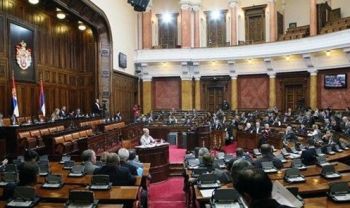- Serbia
Get to know Serbia
- Citizens
Culture and science
Health services
Pension and disability insurance
- Business
Employment
Economy
- Media
- Government
- Contact
Keep in touch
Contact form
Back
Keepin touch
Whether you have a question, comment, suggestion or any problem in the purview of the government, send us your message and we will try to respond as soon as possible. If your problem is not in our purview, we will forward your message to the relevant institution.
Q:
A:
Serbian parliament adopts changes to laws on government, ministries
Belgrade,
11 March 2011
The Serbian parliament adopted today changes to the Law on government and the Law on ministries.
The Law on government stipulates that the prime minister and deputy prime minister can also hold the position of minister.
It prescribes that from the moment the prime ministers submits a motion for the dismissal of a minister until the Serbian parliament decides on this, the minister cannot perform his duties. They will be taken over by a government member authorised by the prime minister.
Government members, state secretaries and directors of special organisations and government services are obliged to advocate government’s positions in their statements in the public.
A government decision must be advocated in the public by the government member who voted against it or was abstained.
Information about the work of the government cannot be provided in any other way apart from the way established by the government’s Rules of Procedure, or in a way in which it cannot be determined which member of the government, state secretary and director of the special organisation and government service has given the information.
The law also envisages that the mandate of the government’s secretary-general ends with his/her dismissal or resignation or the appointment of a new secretary-general.
The changes to the Law on government were voted for by 129 MPs.
The Serbian parliament also adopted the Law on ministries, which stipulates that the Serbian government will have 17 ministries and 21 members.
These are the ministries of foreign affairs; defence; the interior; finance; justice; agriculture, trade, forestry and water management; economy and regional development; infrastructure and energy; human and minority rights, public administration and local self-government.
Other ministries are the ministries of education and science; youth and sport; health; labour and social affairs; environment, mining and spatial planning; culture, media and information society; for Kosovo-Metohija, and religion and diaspora.
The Law on ministries was voted for by 127 MPs.
It prescribes that from the moment the prime ministers submits a motion for the dismissal of a minister until the Serbian parliament decides on this, the minister cannot perform his duties. They will be taken over by a government member authorised by the prime minister.
Government members, state secretaries and directors of special organisations and government services are obliged to advocate government’s positions in their statements in the public.
A government decision must be advocated in the public by the government member who voted against it or was abstained.
Information about the work of the government cannot be provided in any other way apart from the way established by the government’s Rules of Procedure, or in a way in which it cannot be determined which member of the government, state secretary and director of the special organisation and government service has given the information.
The law also envisages that the mandate of the government’s secretary-general ends with his/her dismissal or resignation or the appointment of a new secretary-general.
The changes to the Law on government were voted for by 129 MPs.
The Serbian parliament also adopted the Law on ministries, which stipulates that the Serbian government will have 17 ministries and 21 members.
These are the ministries of foreign affairs; defence; the interior; finance; justice; agriculture, trade, forestry and water management; economy and regional development; infrastructure and energy; human and minority rights, public administration and local self-government.
Other ministries are the ministries of education and science; youth and sport; health; labour and social affairs; environment, mining and spatial planning; culture, media and information society; for Kosovo-Metohija, and religion and diaspora.
The Law on ministries was voted for by 127 MPs.
-
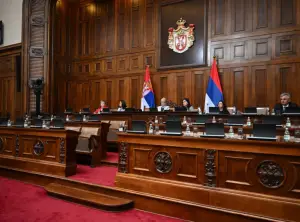 Belgrade, 7 November 2025
Belgrade, 7 November 2025Parliament adopts multiple laws
-
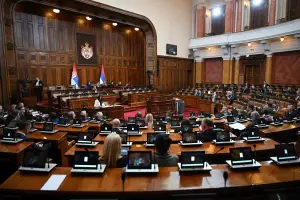 Belgrade, 22 October 2025
Belgrade, 22 October 2025Parliament adopts several laws, ratifies multiple international agreements
-
 Belgrade, 15 October 2025
Belgrade, 15 October 2025Vučić welcomes Ursula von der Leyen in front of Palace of Serbia
-
 Belgrade/New York, 24 September 2025
Belgrade/New York, 24 September 2025Respect for UN Charter obligation of all countries
-
 Belgrade, 13 August 2025
Belgrade, 13 August 2025High level of understanding, agreement between Serbia, Austria
-
 Belgrade, 13 May 2025
Belgrade, 13 May 2025Serbia's sincere, firm commitment to European path, reforms and dialogue
-
 Belgrade, 13 May 2025
Belgrade, 13 May 2025Vučić welcomes European Council President in front of Palace of Serbia
-
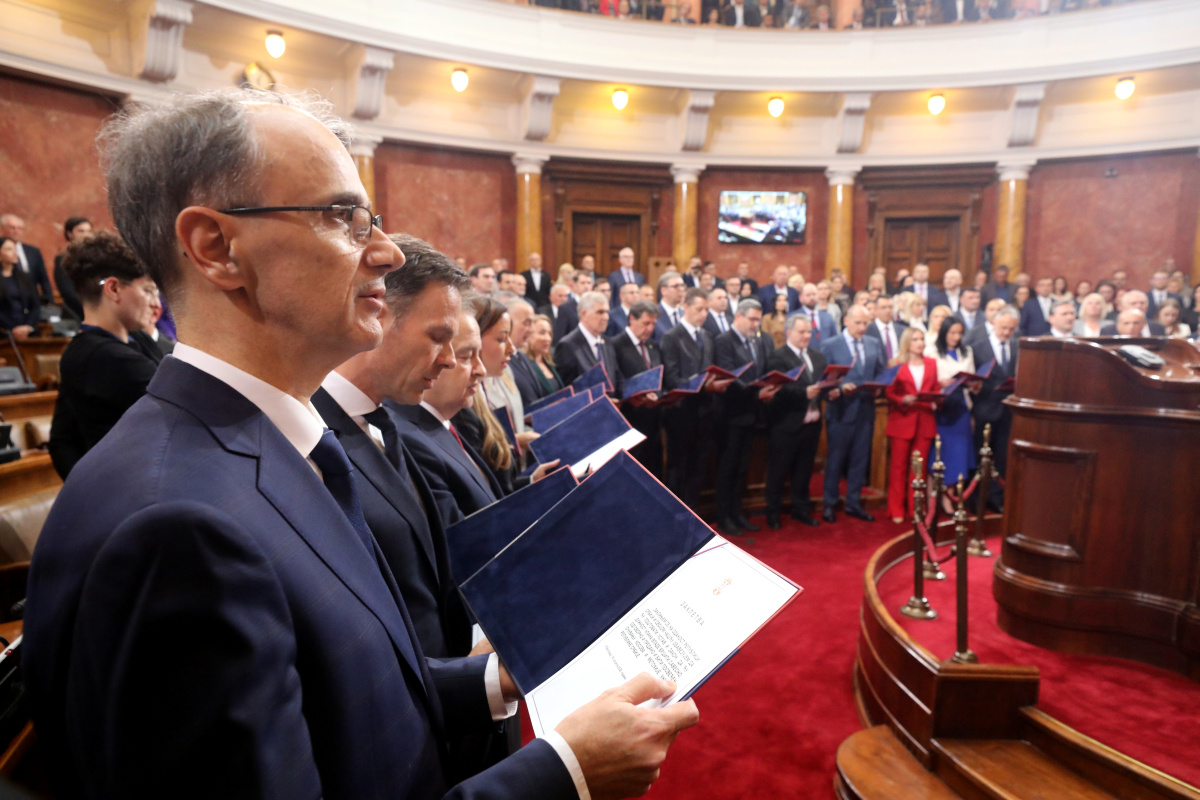 Belgrade, 16 April 2025
Belgrade, 16 April 2025New Serbian government voted in
-
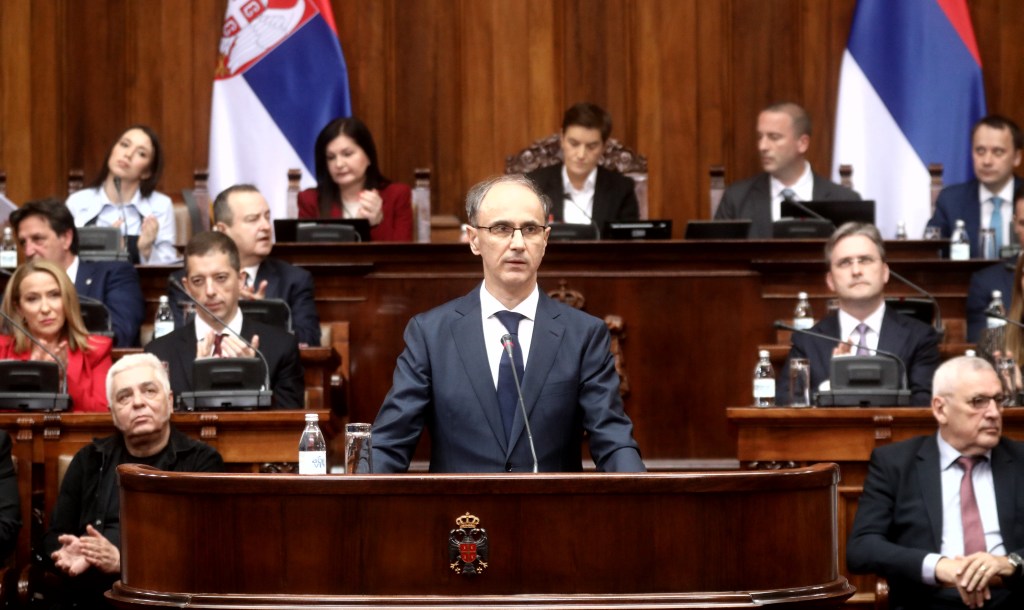 Belgrade, 15 April 2025
Belgrade, 15 April 2025Building unity through dialogue, tolerance, respect for value system
-
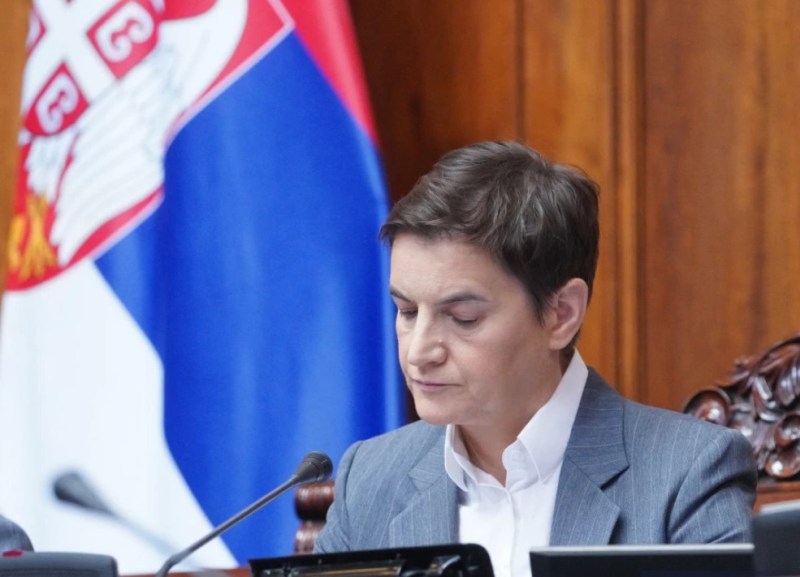 Belgrade, 14 April 2025
Belgrade, 14 April 2025National Assembly speaker convenes session on government election

